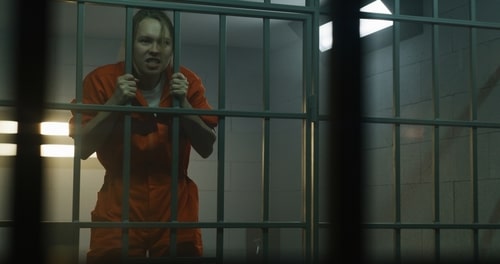When Can You Appropriately Use an “Insanity Defense?"
 One of the most misunderstood and controversial defenses is the insanity plea. TV shows and movies often portray it as a get-out-of-jail-free card for obviously guilty defendants. In reality, the requirements are strict, and successful insanity defenses are rare. An Illinois lawyer can help you figure out if you qualify.
One of the most misunderstood and controversial defenses is the insanity plea. TV shows and movies often portray it as a get-out-of-jail-free card for obviously guilty defendants. In reality, the requirements are strict, and successful insanity defenses are rare. An Illinois lawyer can help you figure out if you qualify.
What Exactly Is an Insanity Defense?
In Illinois, the insanity defense comes from the principle that a person cannot be held criminally responsible if, due to a mental disease or defect, he lacks the capacity to appreciate the criminality of his conduct. The defense does not dispute that the defendant committed the act, only that he was legally insane at the time.
Two Elements Must Be Present
To raise an insanity defense, the defendant must prove by clear and convincing evidence that:
- The individual suffered from a severe mental illness at the time of the offense.
- As a result, he lacked the significant ability to understand the criminality of his behavior.
Both elements are essential. A diagnosis alone is insufficient – the illness must have rendered the defendant incapable of understanding right from wrong regarding the criminal act.
Timing Is Critical
The defendant’s mental state is only relevant for the precise time the crime occurred. A chronic condition before or after the offense does not justify an insanity defense if the defendant was sane during the criminal act itself.
This temporal requirement poses a major challenge. Psychological evaluations and witness testimony must conclusively demonstrate the defendant’s disturbed mental state at that exact moment, which is often difficult to establish.
Proving Insanity is an Extremely High Bar
Unlike many other legal standards based on “preponderance of evidence” or “reasonable doubt,” an insanity plea requires meeting the strict “clear and convincing evidence” threshold. The defendant must convince the judge or jury that his insanity was highly probable.
Consequently, insanity defenses rarely succeed in Illinois and most other states. When they do get raised, it is usually in the most severe and indisputable cases of psychosis, delusion, or dissociation from reality.
Possible Outcomes of an Insanity Finding
If an Illinois court or jury accepts an insanity defense, the person on trial avoids a criminal conviction and sentence. However, the individual is not simply released. The judge will likely order psychiatric treatment, which could include:
- Commitment to a secure mental health facility (often for longer than a prison sentence)
- Mandatory outpatient treatment
- Conditional release with ongoing monitoring and treatment requirements
Only when the individual no longer poses a safety risk can he potentially gain complete discharge.
Contact a Rolling Meadows, IL Criminal Defense Attorney
Trying to attempt an insanity defense demands extensive psychological evaluations, expert testimony, and in-depth evidence presentation. A Chicago, IL criminal defense lawyer with specific experience in this complex area is in your best interest. Call Hartsfield Law at 312-345-1700 to start with a free consultation to see if we can help.













 312-345-1700
312-345-1700



